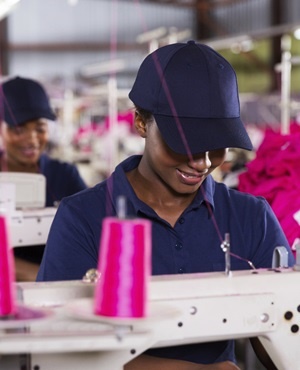
Business incubation is key to supporting and sustaining business enterprises in order to assist them in overcoming barriers in the early stages. It is easy for a small business to “die” within the first two years, according to Maurice Radebe, executive vice-president of energy business at Sasol.
Radebe was speaking at the launch of the Sasol Business Incubator (SBI), which is aimed at assisting black-owned small-, medium- and micro-enterprises (SMMEs), whose products are ready for commercialisation, to develop their start-ups into thriving businesses that contribute to the economy.
The programme was launched at the beginning of May in Sasolburg and is a product of a partnership between Sasol and the department of trade and industry (dti), developed under Sasol’s Enterprise and Supplier Development (ESD) department.
Located on a 172ha Eco-industrial Park (EIP), the SBI can host about 240 diverse SMMEs. So far R90m has been invested in the programme; R34m from Sasol and R20m from the dti. There are 150 stands currently available for sale to small businesses. The pilot project has 16 businesses at the EIP, and three more will be added in the next few weeks, said Wrenelle Stander, senior vic-president of public affairs and real estate services.
The SBI has a specific focus on the manufacturing sector to develop industrialists, and offers access to manufacturing equipment that small businesses need, said Stander.
Long-term sustainability
The incubator entrepreneurs are not to remain at the SBI forever, but need to move on and make a greater difference in society, said Radebe. They are meant to develop into fully fledged, self-sustaining businesses that are financially independent and can contribute to economic growth.
The incubator supports SMMEs in two main areas, physical and virtual incubation.
Physical incubation supports ranges from three to 12 months. The start-up engages in the commercialisation of the businesses products using facilities at the EIP and support from Sasol’s 32-person SBI team. Work space is leased at subsidised rates said Justice Magagula, vice-president of group enterprise and supplier development.
Once graduating, the entrepreneurs will exit the SBI with the intention of establishing an enterprise at the EIP. They can do this by buying the fully serviced land to build their factories, said deputy minister of trade and industry, Mzwandile Masina. Entrepreneurs can apply for loans from the dti to do this. During the virtual phase, the enterprise continues to receive support from SBI for 24 months to ensure its sustainability.




 Publications
Publications
 Partners
Partners











